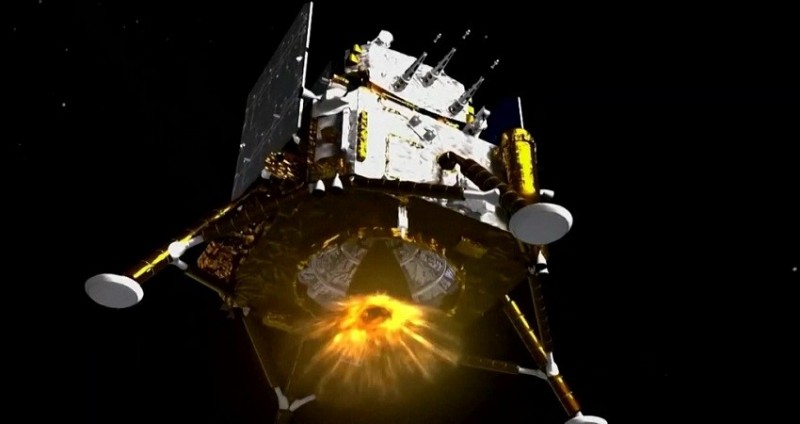
Beijing's space agency announced that the Chang'e-6 spacecraft carrying lunar samples will return to Earth on Tuesday, concluding a groundbreaking 53-day mission hailed as a global first. The exact arrival time of the "precious gifts" from the far side of the Moon was not specified by the agency.
Experts anticipate the probe will land around midday (0400 GMT) on a desolate plain in northern Inner Mongolia. Chang'e-6's payload includes soil and rocks gathered from the Moon's far side, a region less explored than the near side due to its rugged terrain, which preserves ancient lunar history.
Scientists believe the materials retrieved could provide crucial insights into lunar formation and evolution over time. The spacecraft embarked on its mission on May 3 from Hainan Island's space center and touched down in the Moon's vast South Pole-Aitken Basin nearly a month later.
Equipped with a drill and robotic arm, Chang'e-6 collected samples, captured images of the cratered surface, and planted a Chinese basalt flag in the lunar soil. On June 4, it achieved the first successful launch from the far side, marking a significant milestone in human lunar exploration.
China's space agency recently reported that Chang'e-6 is 70% of the way back to Earth. State broadcaster CCTV confirmed that the return module is scheduled to re-enter Earth's atmosphere and land in Dorbod Banner, Inner Mongolia.
China's advancements in space have become a matter of national pride, with extensive media coverage highlighting the significance of the upcoming lunar sample return. Despite celebrations, the mission has also sparked misinformation online, including false claims related to the Apollo Moon landings.
Under President Xi Jinping, China has intensified efforts in its "space dream," investing heavily to narrow the gap with established space powers like the United States and Russia. Recent achievements include deploying a space station, landing rovers on Mars and the Moon, and sending astronauts into orbit.
However, the United States has raised concerns about China's space program, alleging military objectives and ambitions for space dominance. China aims to conduct crewed lunar missions by 2030 and establish a base on the Moon's surface, aligning with the US plan to return astronauts to the Moon with the Artemis 3 mission by 2026.
NASA Astronauts Sunita Williams and Barry Wilmore Remain in Orbit Amid Spacecraft Issues
China and Nigeria Forge New Ties in Beijing Talks and Committee Meeting
China-Australia Forge Closer Ties with Extended Visa Agreement